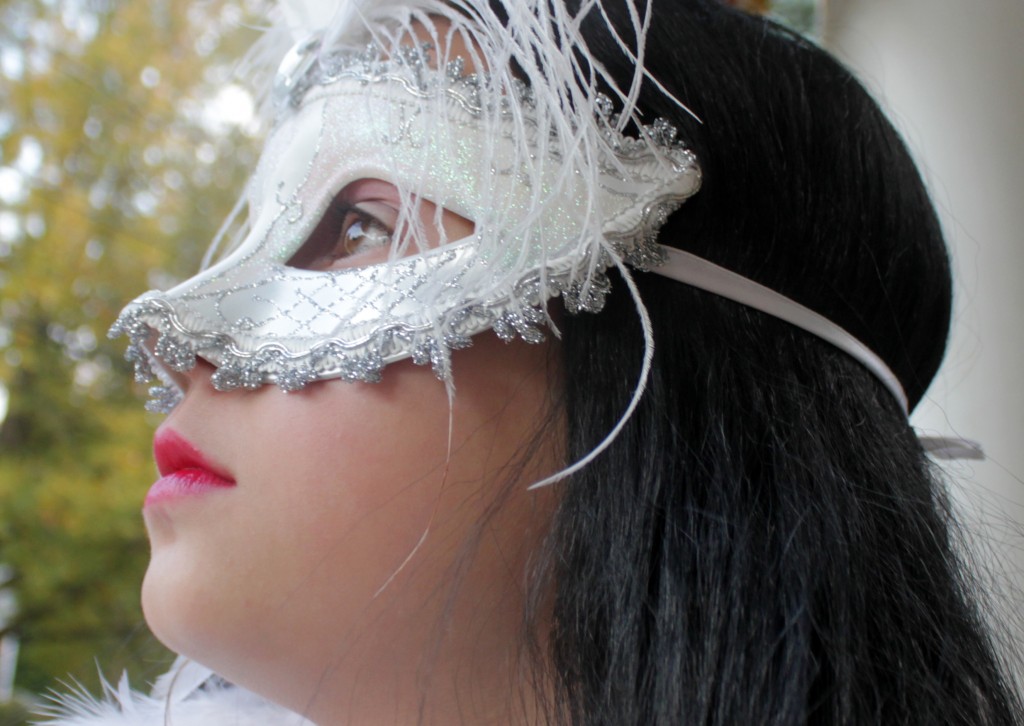
True Intimacy Lives Behind Our Emotional Masks
Photo Credit: WoodleyWonderwork, via Flickr Creative Commons
In the U.S. we celebrate Halloween every year on October 31st. Both children and adults dress up in silly or scary costumes donning masks to hide their identity. It’s intended to be a Mardi-Gras-like holiday that is light-hearted and fun (sometimes mischievous). But the wearing of masks is not unique to Halloween. We are seldom aware of the emotional armoring that we wear daily in order to cover and protect our vulnerabilities.
Overtime, our masks stop protecting us and instead begin to isolate us. It’s like trying to kiss through a screen door.
Several years ago our local newspaper ran an article about rocker Alice Cooper’s visit to our town. In one photo he was seen golfing at the country club wearing a non-descript baseball cap, turtleneck and jacket, looking like any other golfer trying to stay warm on a chilly, sunny day in October. A juxtaposed photo taken at his concert that night showed him wearing heavy make-up, wild costumes, blasting rock and roll to his adoring fans.
In a candid interview, Cooper, born Vincent Furnier, came out from behind the mask of his performance persona. He revealed himself to be a dedicated husband and a dad of two children, who missed his family every day that he was on tour with his band. This pioneer of shock rock revealed a warm, approachable guy who talked openly about being a recovering alcoholic and who counted on his family, golf and music to maintain his sobriety.
For most of us, the masks we wear every day are not a visible costume, but they serve a similar function. They present an alternate façade, behind which our more vulnerable, authentic self can be safely protected. Most workplaces encourage professional facades of emotional detachment and bullet-proof competence. We often feel compelled to mask upsetting feelings behind a veneer of silence and complicity in personal relationships.
Overtime, our masks stop protecting us and instead begin to isolate us. It’s like trying to kiss through a screen door. Our masks form a barrier of emotional separation when what we actually crave is to be known, directly and intimately. We simply want to be seen and accepted for who we are. In his bestseller, Love and Survival, Dr. Dean Ornish wrote, “I am not aware of any other factor in medicine that has a greater impact on our survival than the healing power of love and intimacy… not diet, not smoking, not exercise, not stress, not genetics, not drugs, not surgery.”
The word intimacy is derived from the Latin ‘Intimatus’—to make one’s self known. Herein is our clear guidance for the purpose and efficacy of shedding our masks. Intimacy is the opposite of isolation. It involves opening our hearts, to see and be seen, to love and be loved. Dr. Ornish writes: “The heart develops a particularly strong armor to protect and defend itself, but the same emotional defenses that protect us can also isolate us if they always remain up, if nowhere or no one feels safe enough for us to let down our walls. When I use the term ‘opening your heart,’ I mean your willingness to allow yourself to be open and vulnerable to another person.”
Countless studies have been written summarizing the scientific literature on the health damaging results of loneliness and the life-giving power of love and intimacy. Coming out from behind our masks of self-protection is about finding the courage to be seen and known. It is a direct pathway to healing what separates us from each other, and from our true self.
Share an experience of how someone allowed you to become more open and vulnerable?








